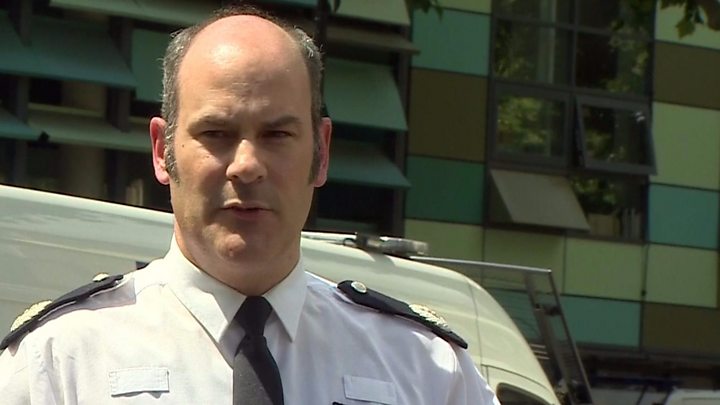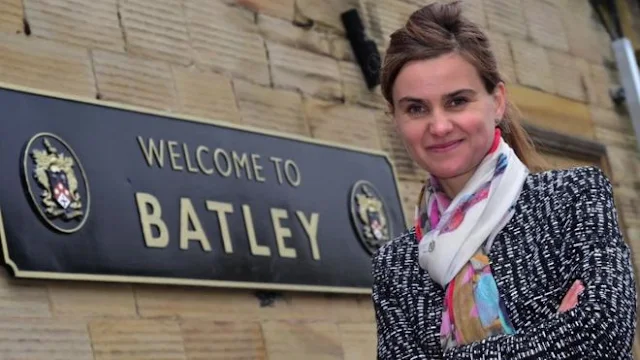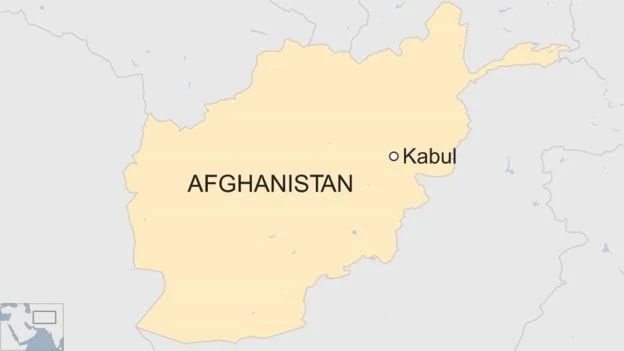A man was brought down with a Taser outside the Palace of Westminster after he reached for a knife when approached by officers, Scotland Yard has said.
A bearded man, wearing black trousers and a grey sweatshirt, was seen being held against the fence with his arms behind his back by a police officer.
Police said the man was arrested on suspicion of possessing a knife.
But they "remain open minded as to whether terrorism was a motive", they said.
The man was held just yards from where PC Keith Palmer was stabbed to death by terrorist Khalid Masood in March.
Joe Murphy, London Evening Standard political editor, tweeted: "There were shouts of 'knife, knife, knife' and man was brought down with a Taser."
BBC deputy political editor John Pienaar said the latest incident ended very swiftly with the man being taken away in a police van.
While the gates are closed, the road and pavement opposite remained open and the incident had no effect on traffic in Parliament Square, he said.
In a statement, the Metropolitan Police said "it is too early to understand the motivation" of the man "so we have not declared this a terrorist incident".
"However, given the location, the circumstances and recent tragic events, the MPS Counter Terrorism Command will be investigating this incident.
"We remain open-minded as to whether terrorism was a motive."
Eyewitness Bradley Allen, 19, from Barking, east London, who was walking past Parliament, said he saw a man "who looked quite angry with fists quite clenched".
"He stared at me and my mate and we walked past him. Within seconds there was a shout and police ran out of the front gate shouting at him 'Get on the floor, get on the ground'.
"Within seconds he was on the ground - I'm not sure whether he was Tasered - I'm not sure how he got down there, but in seconds it was over.
"Armed police everywhere, telling everyone to move back, and we all got pushed back."
Security tightened
Security around Westminster was tightened following the attack by Masood, who was shot dead after fatally stabbing PC Palmer as he guarded Carriage Gate.
A review of security at the perimeter of the parliamentary estate was ordered by Commons Speaker John Bercow following the incident.
The use of armed officers and physical barriers have become more visible, while a permanent barrier has been erected to protect pedestrians on Westminster Bridge, where Masood murdered five people and injured more than 50 others by mounting the pavement in a car.
BBC NEWS


















